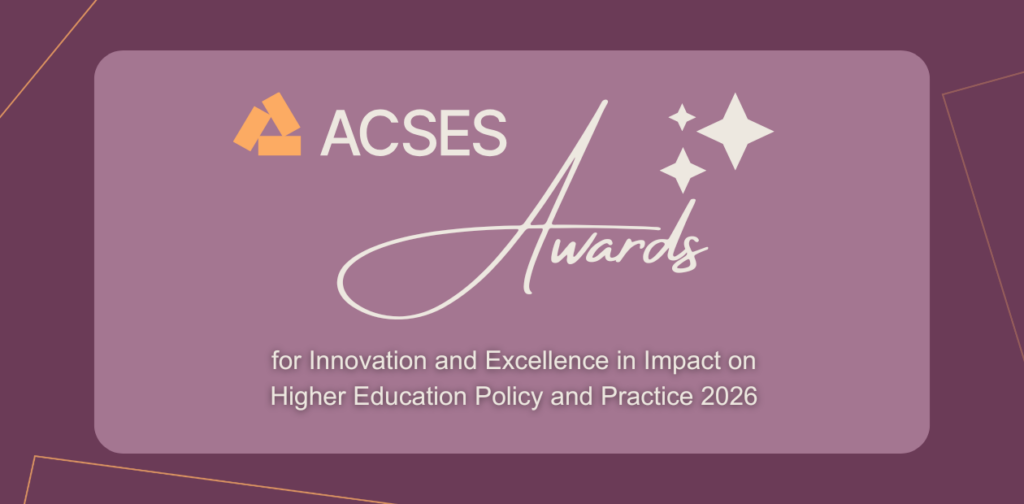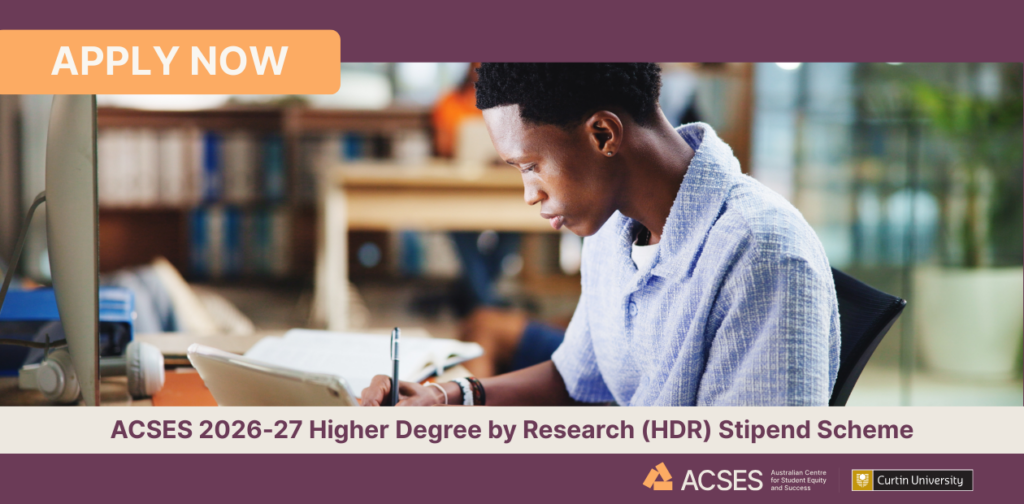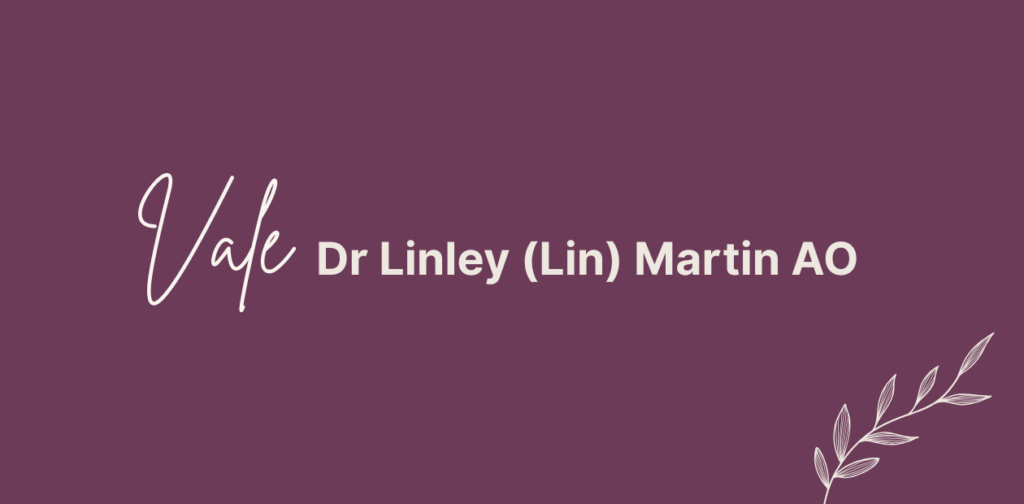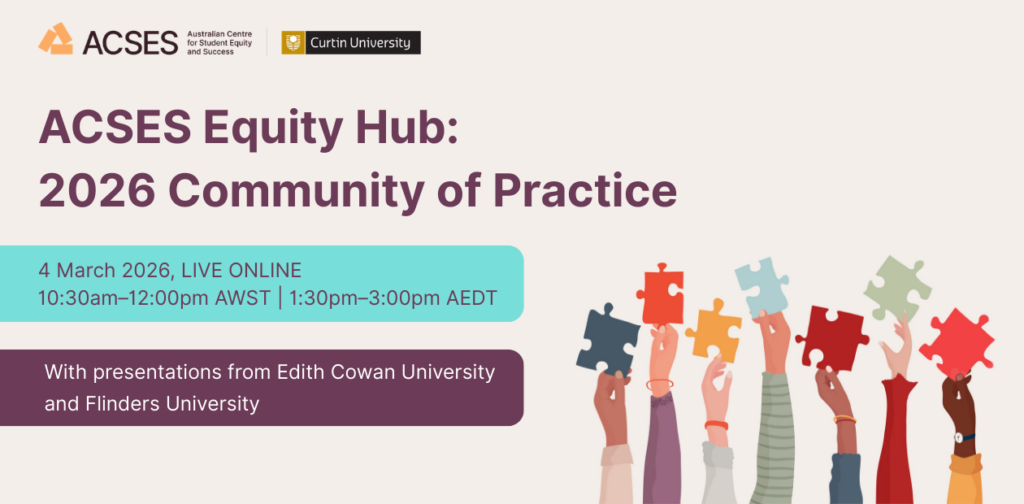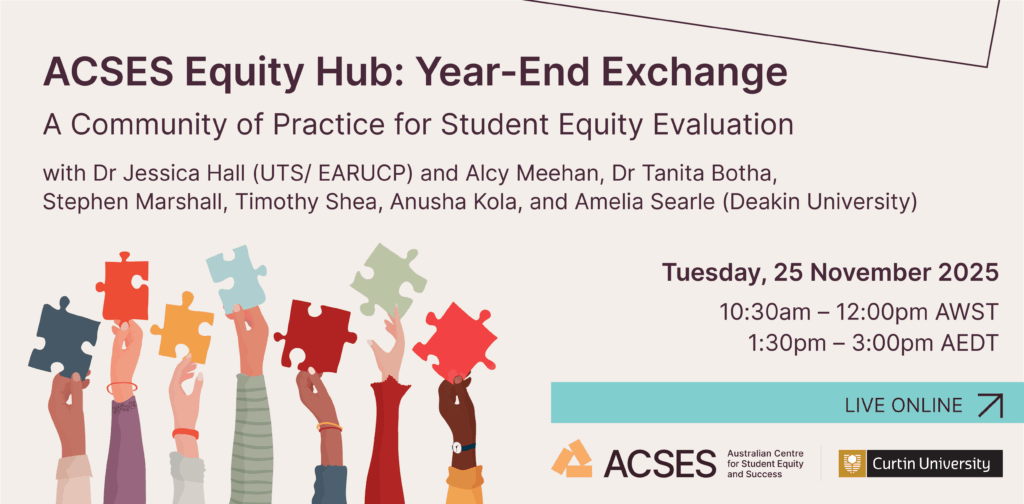The Australian Centre for Student Equity and Success acknowledges Indigenous peoples across Australia as the Traditional Owners of the lands on which the nation’s campuses are situated. With a history spanning more than 60,000 years as the original educators, Indigenous peoples hold a unique place in our nation. We recognise the importance of their knowledge and culture, and reflect the principles of participation, equity, and cultural respect in our work. We pay our respects to Elders past, present, and future, and consider it an honour to learn from our Indigenous colleagues, partners, and friends.
The Australian Centre for Student Equity and Success (ACSES) is a national research and policy centre funded by the Australian Government Department of Education and based at Curtin University.
Leading a new era for student equity in Australia, ACSES partners with universities to close equity gaps in higher education by identifying and promoting evidence-based policies, practices, and programs that improve student success.
As a What Works Centre, ACSES provides tangible, research-backed guidance on what works to support equity students—particularly First Nations Australians, students with disability, those from low socioeconomic backgrounds, and students in regional and remote areas.
Through collaboration, innovation, and a focus on real-world outcomes, ACSES is shaping a fairer higher education system.
Interactive Data Tool
All data reported are sourced from the Australian Government Department of Education’s Higher Education Student Data Collection.
This tool enables you to compare the data at national, state/territory, and institutional levels across seven key indicators:














